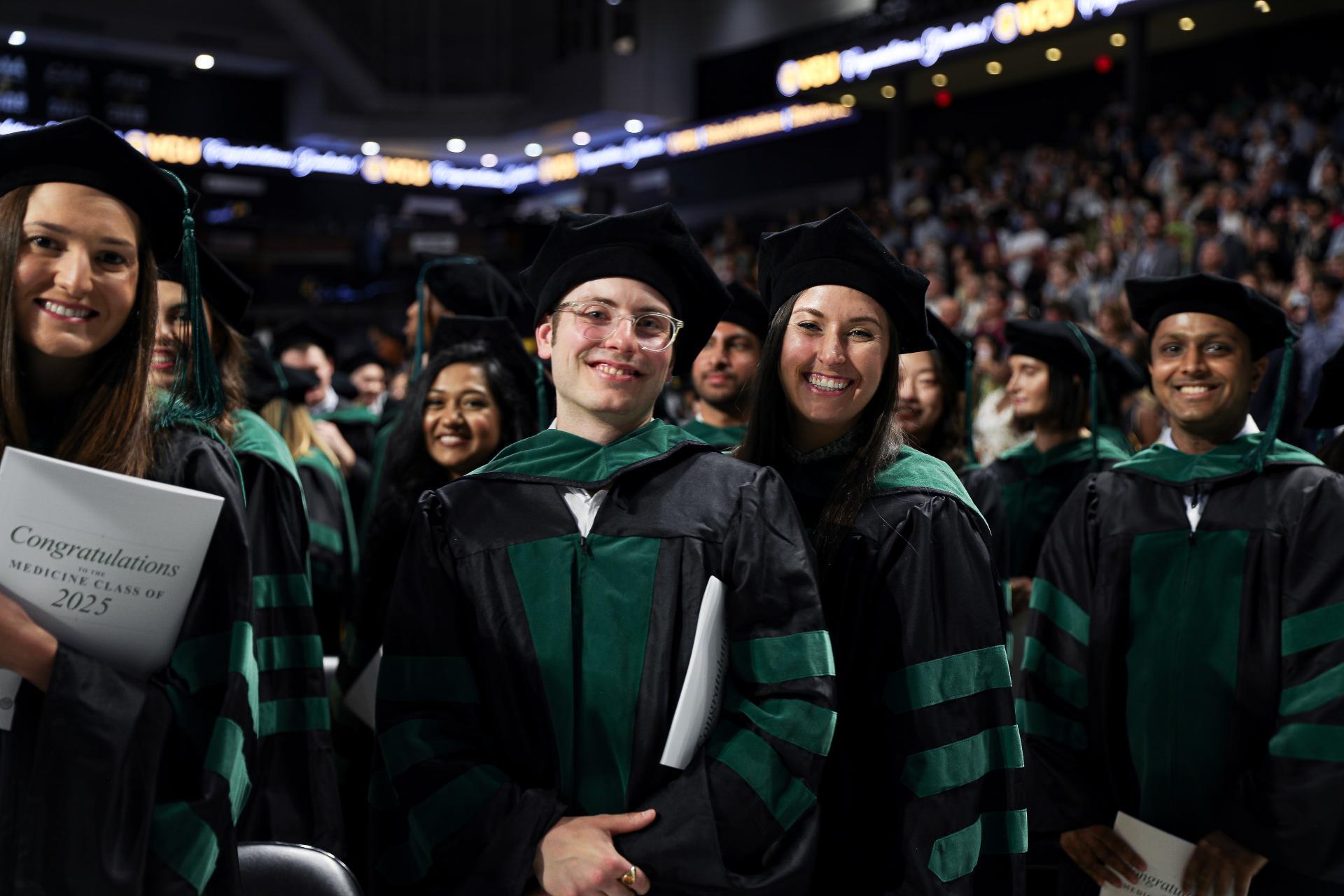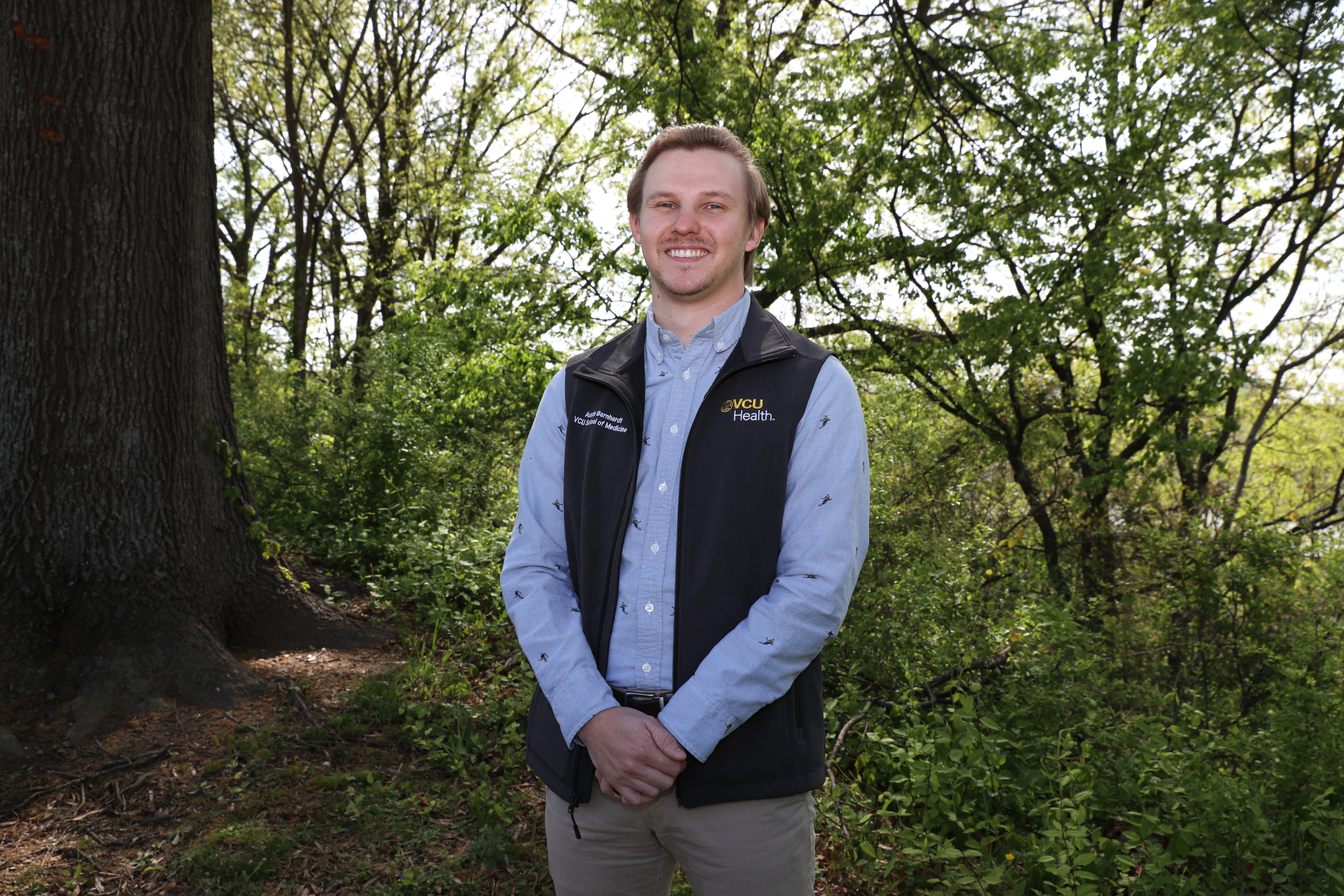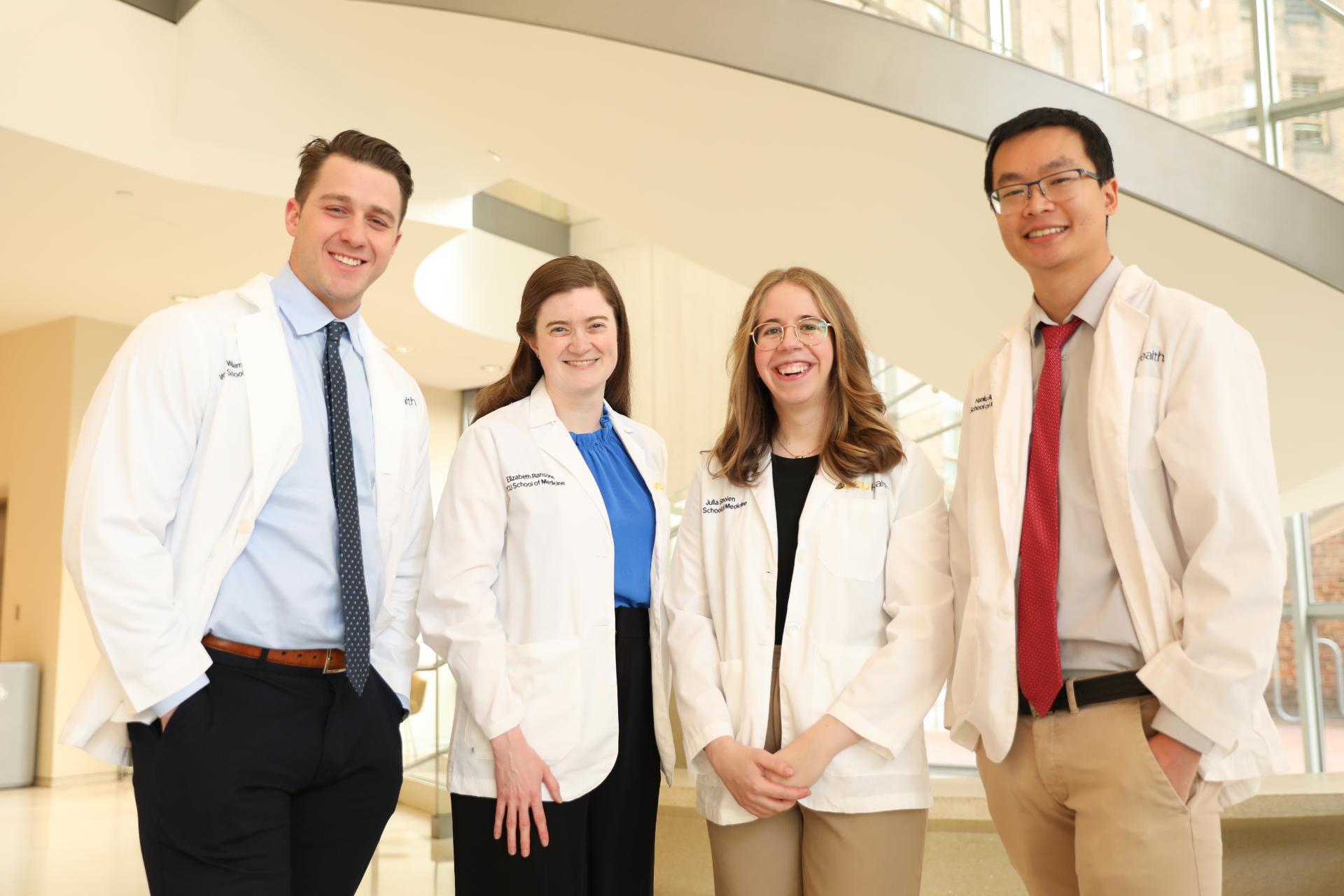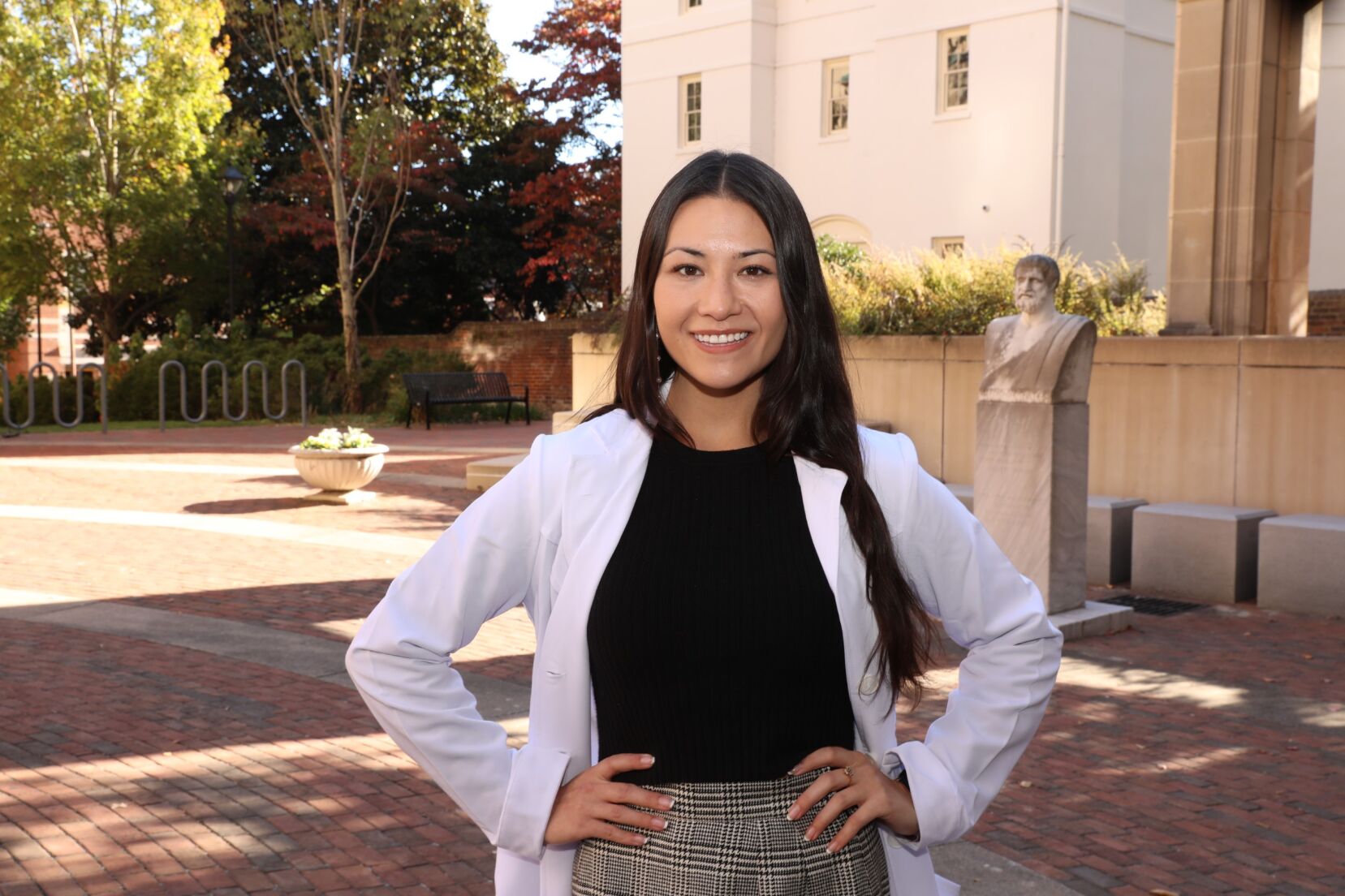Commencement speaker highlights lifelong learning
During two graduation ceremonies, decorated astronaut Kathryn Thornton, Ph.D., addressed and celebrated the School of Medicine’s M.D. and advanced degree graduates.

More than 180 M.D. students graduated from the VCU School of Medicine on Friday, May 9. (Photo by Arda Athman, School of Medicine)
On Friday, May 9, the VCU School of Medicine celebrated the graduation of 187 medical students and 112 graduate students. During both ceremonies, keynote speaker Kathryn Thornton, Ph.D., encouraged graduates to continue to challenge themselves and remain open to learning throughout their careers.
“Whether you’re heading into research, medicine, public health policy or something we haven’t even invented yet, you’ll find yourself in rooms where you don’t feel ready,” she said to an auditorium full of graduate students and their supporters. “Show up anyway and keep showing up until one day someone is asking you for help.”
Advanced degree recognition ceremony
The advanced degree recognition ceremony, held in the auditorium inside the Kontos building on the MCV Campus, honored the School of Medicine’s 24 Ph.D., 40 master’s and 48 certificate graduates, who represented 20 different programs. More than 135 students were also recognized as recipients of awards at the school, university and national levels.
Mike Grotewiel, Ph.D., associate dean for graduate education, began the celebration by recognizing the hard work and accomplishments of the graduating students throughout their education. He also honored the families, partners and VCU faculty that supported them along the way.
“Graduate training is a transformative process, and it works because students work hard,” Grotewiel said. “It also works because of all the support graduate students receive during their training. While out students are the focus of the event today, everyone who has supported a graduate student deserves to be recognized.”
Arturo Saavedra, M.D.-Ph.D., dean of the VCU School of Medicine, commended the students for their problem-solving skills. He highlighted their ability to identify and address problems, especially in an ever-changing landscape of science and academia.
“You are graduating with a degree that required you to question,” Saavedra said. “It’s also required you to see the world very differently and look for problems, some of which have never been identified before.”
Thornton, who earned her own M.S. and Ph.D. in physics from the University of Virginia before joining NASA’s third ever class of astronauts to include women in 1984, commended the graduates for their ability to find answers to difficult questions.
“One of the most essential skills you’ve developed is the ability to teach yourself to step into unfamiliar territory and read, listen, ask questions and persist until it makes sense,” Thornton said. “In a world where knowledge evolves faster than we can standardize it, that is your superpower.”
M.D. hooding ceremony
Before introducing the keynote speaker at the M.D. hooding ceremony, Saavedra addressed the arena packed with M.D. graduates and their friends and families. He noted that Thornton has “been where we leave all politics, all trouble and everything else behind,” and encouraged the graduates to leave fear and uncertainty behind as they begin the next phase of their journeys as doctors.
“Keep moving forward, keep learning, keep getting better,” Saavedra said. “Being a doctor is an honor, a privilege and an incredible responsibility.”
Thornton, in her second speech of the day, echoed the sentiment of continued growth and learning. She noted upfront that she is not a physician, and “can’t pretend to know the challenges that you’ve overcome so far.” What she did offer was a reflection on compassion, and she encouraged the class of new doctors to never stop working to strengthen their muscles of empathy, both at work and in the world at large.
“Empathy and compassion are not optional in medicine. They are not soft skills; they are not extras. They are foundational,” she said. “You can have all the knowledge in the world, diagnose with precision, prescribe with brilliance. But if your patient doesn’t feel safe, if they don't feel seen, if they don’t feel cared for, then your job isn’t done.”
She also shared her experiences in interacting with friends, family and colleagues whose beliefs differ from hers. Those encounters can leave her feeling frustrated, sad and bewildered, but when she has made the effort to ask questions and listen to “the story behind their story,” she said she often learns something, not just about the other person, but about herself.
“That kind of listening, that kind of openness, will serve you well as a doctor,” she said. “I urge you to consciously practice listening as you would practice the piano to become proficient, not just in the exam room, but also in your role as a leader, as a citizen, and as a fellow traveler in this messy, complicated world.”
Among this year’s graduates were Ashley Parkhurst McKee, M.D. and Connor McKee, M.D., who met on the first day of medical school orientation and got married weeks after Match Day. Also keeping VCU School of Medicine in the family was Rebecca Moncayo, M.D., who graduated the same weekend that her sister, Lauren Moncayo, Ph.D., earned her doctorate from the Department of Pharmacology and Toxicology.
Send us your stories!
The School of Medicine communications team is always looking to highlight student success, faculty achievement, cutting-edge research and innovative initiatives around the MCV Campus. If you have an idea for a story, please submit your pitch to laura.ingles@vcuhealth.org.





